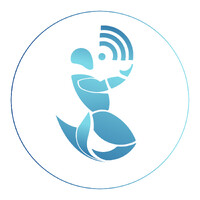The City of Cagliari has long been engaged in a journey to redefine its digital, integrated and coordinated strategy to address territorial challenges on smart, inclusive and sustainable growth in urban areas. As part of the adoption of the Smart City paradigm, the city has a strong interest in the themes of sustainable mobility, environmental sensing, smart energy management and tourism, themes in which the city has long invested in synergy with companies operating in the area. This investment has materialized over time with the provision of test scenarios within the municipal territory for the implementation of various research and development projects: Joint Innovation Center - JIC; National Center MOST; Metropolitan Digital Fabric - TDM; Cagliari2020; Cagliari Port 2020; Netergit; Smart Beach; Smart Parking; Smart Traffic; Cagliari Smart City.
There is no doubt that an investment on new digital technologies requires continuous efforts to keep up with the fast pace of technological evolution associated with innovative solutions for cellular communications (5G/6G) and enabling technologies, including AI, blockchain, quantum computing and IoT. Such investments can hardly be supported by SMEs alone, and this project represents an important effort in favor of the entrepreneurial fabric of the city of Cagliari.
In line with this goal, the project intends to provide a physical space and the necessary resources to develop business ideas, experiment with new technologies and transfer the knowledge gained toward SMEs, startups and innovative companies that can particularly benefit from digital transformations. Cagliari "House of Technology," henceforth called Cagliari Digital Lab (CDL), will therefore be able to fully graft itself into the ongoing activities for the development of new Smart City services envisaged in the METRO National Operational Program by expanding its scope, areas of intervention and sources of funding for experimentation in 5G and for the development and testing of innovative urban services in various sectors.
The Cagliari Digital Lab will be based in Body B of the Bastion of San Remy, in Piazza Costituzione in the historic center of Cagliari, recently restored and used exclusively for the activities envisaged in the project. The physical space will be set up with workstations, prototyping area, areas for workshops and seminars as well as for carrying out communication, dissemination and animation activities.
The lab will be set up with:
- a quantum computing platform for testing solutions for smart cities;
- an indoor 5G infrastructure enabling the realization of applications of growing interest in different areas, such as: logistics, tourism and industrial automation;
- an outdoor 5G infrastructure to illuminate two city areas based on an "ALL IP" network architecture with separation introduced between access, core and services/applications network and supported by a mobile edge computing solution;
- a cloud platform with nodes suitable for the development of Artificial Intelligence and Deep Learning applications;
- a technology infrastructure capable of ensuring the connection of sensors, devices, vehicles, applications with edge computing and to the public/private cloud, making available enormous data potential;
- a platform of open APIs for service integration.
In addition, the CDL will include entrepreneurial contamination paths aimed at startups that intend to develop organizational, technological and business model innovations related to 5G/6G solutions and enabling technologies.
As part of the project, CRS4 is responsible for the following activities:
- setup of a Quantum Computing laboratory, in which emerging technologies, such as quantum communication, quantum computing and hybrid computing, will be made available to catalyze their adoption in vertical applications; and development of a modular platform that deals with data management up to the presentation of the processed information;
- development of software modules, prototypes and functional data for applied and experimental research in the field of mobility;
- applied and experimental research in the field of efficient management of energy resources, with particular reference to methods for forecasting energy demand and production from renewable sources and scalable methods of data acquisition, aggregation, processing and presentation.



